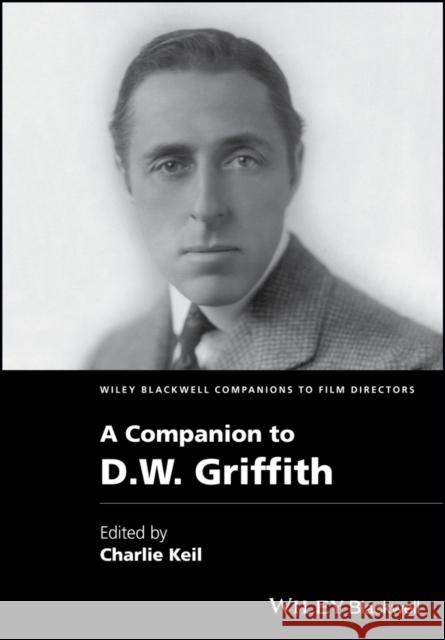A Companion to D. W. Griffith » książka
A Companion to D. W. Griffith
ISBN-13: 9781118341254 / Angielski / Twarda / 2018 / 624 str.
Once regarded as irrelevant by the Hollywood he helped to establish, D.W. Griffith is now considered one of the most important directors in film history. Griffith was instrumental in the emergence of cinema′s transitional period of the early 20th Century, when the nickelodeon–era short gave way to the multi–reel feature, and when motion pictures became both a national pastime and a form of artistic expression. His crucial role in the development of filmic style and narrative conventions made him one of the first auteurs of the American cinema and a key figure in its aesthetic history. A Companion to D.W. Griffith offers a collection of 21 original essays that analyze Griffith′s work from a variety of perspectives, collectively providing an exhaustive examination of the filmmaker′s life, work, and lasting filmic legacy. Leading scholars from North America and Europe investigate Griffith′s use of allegory and symbolism, his role in establishing popular editing techniques such as crosscutting and scene analysis, and his attention to aspects of mise–en–scène, from performance to lighting. Contributors also study the role of gender and race in both Griffith′s Biograph films and his features, and discuss his relationship to the Progressive movement. Others extend our knowledge of the reception and critical reputation of rarely considered mid–period features, in addition to key masterworks such as The Birth of a Nation (1915), Intolerance (1916), and Broken Blossoms (1919). With the recent revival of scholarly interest in Griffith′s career and contributions to cinema, A Companion to D.W. Griffith is a timely and comprehensive exploration of this influential yet controversial pioneering figure, and a valuable resource for students of film history, silent cinema, and film directing.
The most comprehensive volume on one of the most controversial directors in American film history A Companion to D.W. Griffith offers an exhaustive look at the first acknowledged auteur of the cinema and provides an authoritative account of the director s life, work, and lasting filmic legacy.











